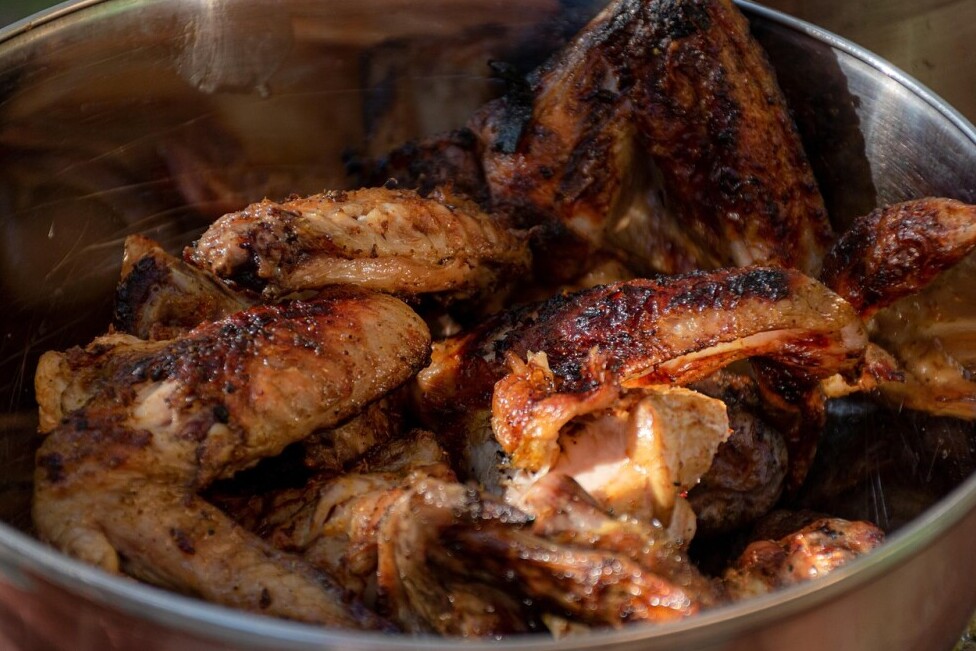Protein’s kind of like the building block guru when it comes to muscle. It plays a big role in how our bodies grow, repair, and keep things running smoothly, especially when we’re talking muscles. Muscles literally can’t be built without protein—which makes it pretty darn important if you’re hitting the gym.
Now, protein isn’t just a one-size-fits-all deal. Depending on things like your age, how active you are, and yep, even your gender, your protein needs can be all over the map. Teen athletes, bodybuilders, and people heavy into fitness often need more to support their goals compared to someone who’s not as active. It’s all about finding what’s right for your lifestyle and body.
Amino acids, which you might remember from your high school science class, are like the little Lego pieces that come together to make up protein. They’re super important because they help repair and grow muscles, especially after you’ve lifted or done some intense exercise.
Besides muscle-making, protein can help you feel full, which means you’re less likely to snack mindlessly, aiding in maintaining a healthy weight. Plus, it can give your metabolism a nice little boost. A lot of people don’t realize this, but getting enough protein is key to supporting lean muscle mass while keeping the metabolism working efficiently.
Best Sources of Protein to Support Lean Muscle Mass
Protein comes in many flavors, and depending on your lifestyle or dietary preferences, there are tons of options out there. Animal-based proteins, like chicken, turkey, and fish, are major players offering a high dose of protein per bite. They’re typically considered complete proteins, meaning they contain all the essential amino acids your body can’t make on its own.
But hey, if plants are more your speed, you’re not missing out. Beans, lentils, and chickpeas pack a punch when it comes to protein too. While they may not hit all the amino acids in one go, combining different plant-based foods can get the job done. Think rice and beans or hummus and pita, and you’ve got yourself a complete protein.
Now, supplements like whey and casein can give you that protein boost if you’re busy or need a little extra. Whey’s great for a quick post-workout fix because it’s fast-absorbing, while casein works better before bed due to its slow release. But remember, it’s always best to get the bulk of your nutrition from whole foods.
There’s also an environmental angle to consider. Some protein sources are more eco-friendly than others. Plant-based options tend to have a lower carbon footprint. Being mindful of where your protein comes from is just as important as getting enough of it.
Choosing what works best for you can depend on a lot of things—your goals, dietary needs, or even how the weather’s treating your local produce—so explore what’s out there. The key is to keep it balanced and varied, ensuring you cover all your nutritional bases.
Timing and Distribution: Optimizing Protein Intake
When it comes to protein intake, timing can really make a difference in how well your body utilizes it. Eating protein at regular intervals throughout the day helps maintain the muscle-building process. This ensures your body has a steady supply of amino acids ready to kick into action when needed.
Particularly around workouts, protein plays a crucial role. Eating some before your workout can help jumpstart the muscle repair process. But tossing in some after you hit the gym is where the magic really happens, maximizing recovery and growth. Think of it as giving your muscles their favorite treat after they’ve worked hard.
How much protein should you actually eat? Most experts suggest spreading your intake across all your meals. Aim for a balanced amount throughout breakfast, lunch, and dinner rather than loading up in one massive serving. This kind of distribution helps with muscle protein synthesis all day long.
There’s chatter about something called protein cycling, which is about changing the amount of protein you eat over certain days. Some folks believe this can lead to better muscle gains, though research is still catching up. It’s worth exploring if you’re curious about varying your intake.
Meal planning can be your best friend here. Prep meals that include solid protein portions and snacks to keep you on track. It not only supports your goals but keeps you from reaching for less nutritious options when hunger strikes unexpectedly.
Common Misconceptions and Research on Protein
Protein can be a bit of a controversial subject with plenty of myths floating around. A big one is the idea that high-protein diets are hard on the kidneys. For most people with healthy kidneys, this isn’t a concern. In fact, reasonable high-protein diets are generally safe and effective for muscle building.
Another common misunderstanding involves protein and heart health. While some high-protein diets have been criticized for increasing heart disease risk, that’s often more about the saturated fats accompanying certain protein sources. Opt for lean or plant-based proteins for a heart-healthy choice.
Staying updated with the latest research is key, as guidelines on optimal protein intake for muscle growth continue to evolve, especially for different age groups. Older adults, for example, might benefit from slightly increased protein to help counter muscle loss with age.
Not everyone needs sky-high protein levels. Athletes and highly active folks might need more than the average couch potato, but everyone’s protein needs are different. Finding the right balance for your lifestyle and goals is what it’s all about.
Lastly, navigating the sea of information out there can be tricky. Some studies are more reliable than others. Looking for well-conducted, peer-reviewed research will always serve you better in understanding what works and what’s just hype.

Protein is essential for building lean muscle because it helps repair and grow muscle tissue after workouts. I agree with the article’s points, getting enough protein, especially after strength training, can really boost muscle development. It’s also smart to spread protein intake throughout the day and not rely only on shakes. Whole foods like chicken, eggs, beans, and nuts provide great benefits alongside supplements. A balanced approach makes the biggest impact.
Hello, Marlinda. Thank you for your comments and opinion on my article. I’m glad to hear you found it helpful. I hope to getting more like it out soon. All my best to you, Firelava